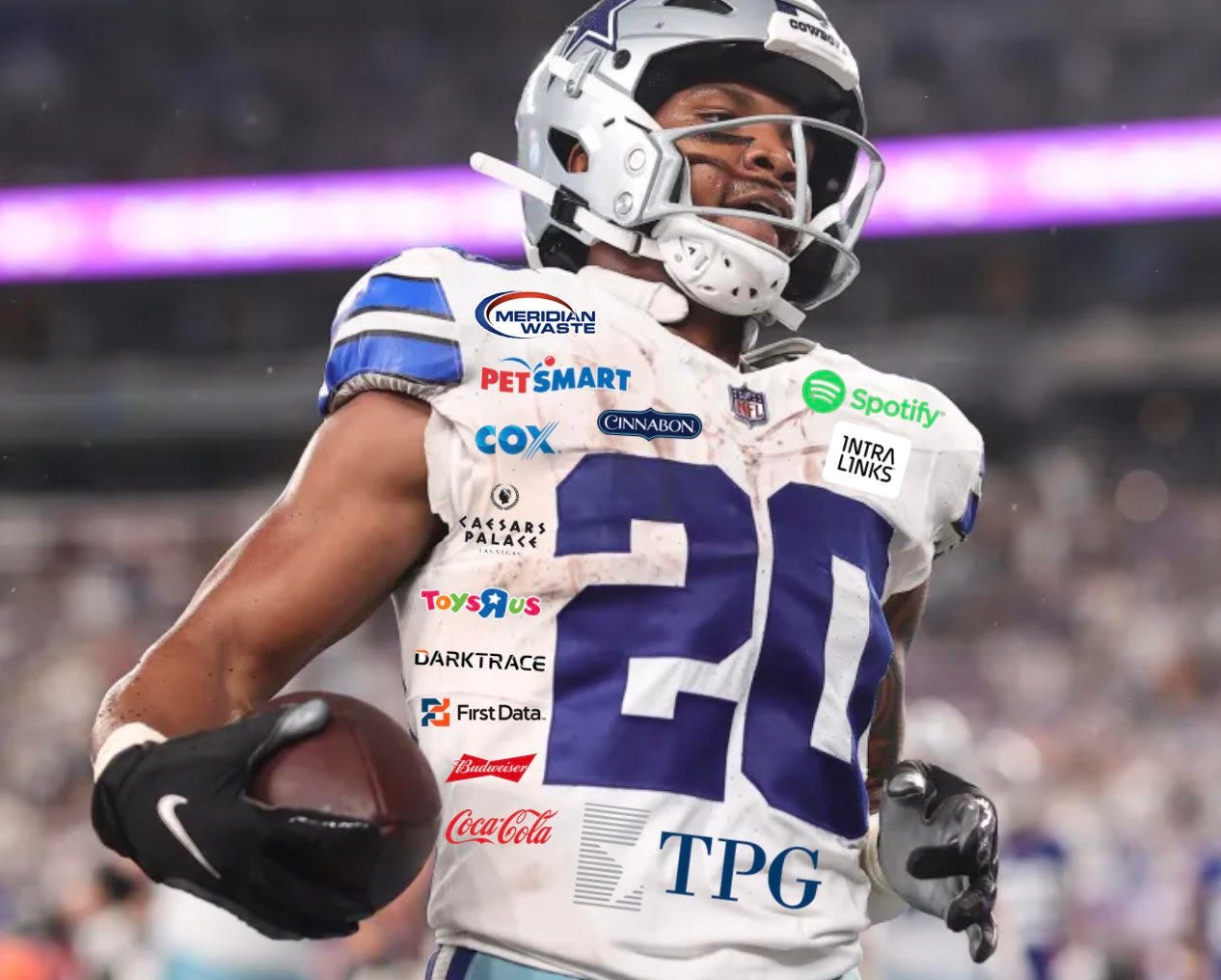Follow the Money Edition 4: Sunday, September 1st, 2024
Private Equity Finally Breaks Through the NFL's Front Line
Deep Insight: Private Equity is Here to Usher in the Age of Austerity to the NFL
We usually use the top of this letter to dive into an innovation trend, but this week, something else extremely noteworthy happened that will affect at least 30 major US cities and their built environment. After years of holding the line against institutional ownership, the NFL is finally capitulating, allowing private equity firms to own up to 10% of its teams. But this isn’t about glamorous cash infusions—this is a strategic pivot as the league braces for an economic squeeze. With high interest rates, inflationary pressures, and a more cautious consumer, the NFL’s era of freewheeling spending could be giving way to a new age of austerity.
Deal Structure Breakdown:
Ownership Cap: Private equity firms can own up to 10% of an NFL team, far more restrictive than the 30% permitted in the NBA.
Select Firms: Arctos, Ares Management, Sixth Street, and a heavyweight consortium of Blackstone, Carlyle, CVC, and Dynasty Equity are among the first approved.
Investment Conditions:
No governance rights: Firms buy into the prestige, not the power.
Minimum holding period of six years: There’s no quick flip option here, locking capital in longer than typical deals.
Straight equity only: No preferred structures, stripping firms of their usual financial playbook.
The NFL isn’t just making this move because it wants to; it’s because it needs to. Franchise valuations have soared to eye-watering heights, and with tighter capital markets, even deep-pocketed team owners are feeling the crunch. By allowing private equity in, the league can inject liquidity without overhauling its ownership fabric. Private equity’s entry signals a broader shift from growth to cost containment. In an environment where capital is more expensive and consumer wallets are tightening, teams will be forced to find efficiencies. Expect private equity to push for a disciplined approach: cutting excess, streamlining operations, and scrutinizing every dollar spent. The NFL’s decision to allow private equity in reflects the league’s acknowledgment that even the most fortified franchises aren’t immune to broader economic headwinds. Whether this experiment heralds a new, leaner era for the NFL—or simply sets the stage for friction between cash-hungry owners and profit-driven investors—remains to be seen. What’s clear is that the NFL is bracing for a tougher economic reality, and private equity is here to enforce it.
VC Funding Rounds
Butlr, a senor platform for intelligent buildings, raised $38M in Series B funding from Foundry (who led), Pacific Alliance Venture, GS Futures, DNX Ventures, Ray Stata, Joi Ito, Carrier, Qualcomm and GS Futures.
Moxy, a Las Vegas developer of building materials from forest and farming scrap, raised $11M in Series A funding led by At One Ventures.
Quick Insight: Remember those “better for the planet” building materials we’ve been talking about the last couple of weeks? Here they are again. Noticing a trend?
Sunswap, a British developer of decarbonization solutions for cold-chain logistics, raised £17M led by BGF, joined by Shell Ventures, Move Energy, and existing investors Barclays and Clean Growth Fund.
Quick Insight: Demand for better-for-you food products has expanded the grocery and frozen sections in grocery stores, but cold chain logistics have struggled to cope with the added pressures of increased demand. This is a critical climate tech solution in a rapidly changing sector.
Planera, a CPM-based scheduling and planning platform for the construction industry, raised $13.5M in Series A funding. Sierra Ventures led the round and was joined by Sorenson Capital, Brick and Mortar Ventures, Prudence VC, and Firebolt Ventures.
Keep reading with a 7-day free trial
Subscribe to Mark to Market to keep reading this post and get 7 days of free access to the full post archives.





